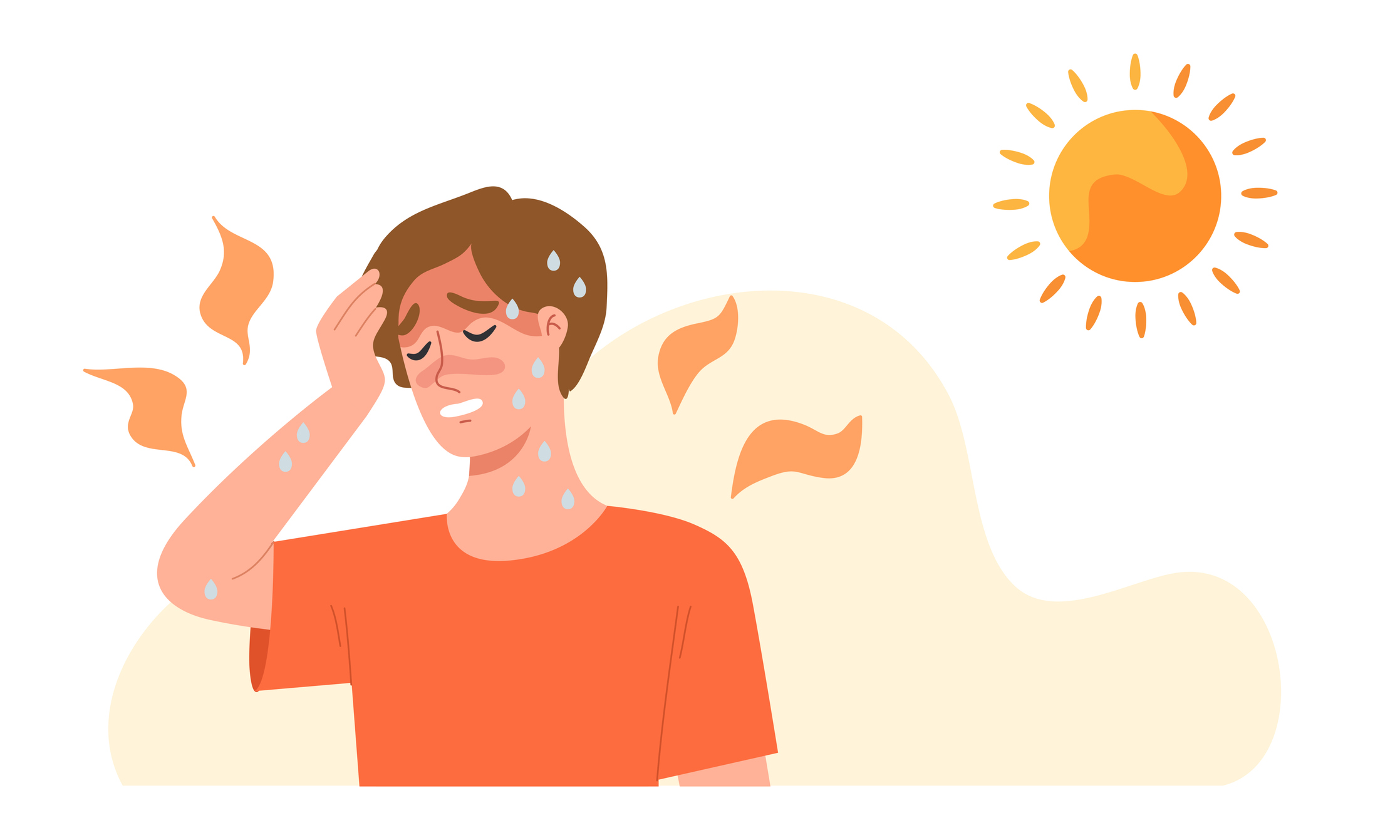As temperatures rise, so does the risk of heat-related illnesses—especially heat stroke, the most severe form of heat exhaustion. It can strike quickly and become life-threatening without warning. But with a few mindful practices, you can keep yourself and others safe.
Here are six essential tips to protect yourself from heat stroke:
1. Stay Hydrated
One of the simplest yet most crucial defenses against heat stroke is staying hydrated. Drink water every 20–30 minutes, even if you’re not thirsty. Dehydration can sneak up on you, especially in dry heat. Avoid caffeine, sugary beverages, and alcohol—they can accelerate dehydration and worsen your condition.
2. Wear Light Clothing
Your outfit can make a big difference in how your body handles the heat. Choose loose-fitting, light-colored, and breathable fabrics like cotton or linen. Dark colors absorb more heat, while tight clothes trap it. Also, don’t forget sun protection—wear a wide-brimmed hat and sunglasses to shield your face and eyes.
3. Avoid Peak Heat Hours
The sun is typically strongest between 11 AM and 4 PM. During this window, limit outdoor activities. If being outside is unavoidable, take frequent breaks in shaded or air-conditioned spaces. Even a few minutes in a cooler area can help regulate your body temperature.
4. Cool Your Body
If you’re feeling overheated, act fast. Use cold compresses, wet towels, or take cool showers to bring your body temperature down. Splashing your wrists, neck, and face with cool water can also help. These simple methods can be life-saving when signs of heat exhaustion begin.
5. Never Leave Anyone in a Parked Car
This cannot be stressed enough—never leave children, pets, or anyone vulnerable in a parked car, even for a few minutes. Cars can turn into ovens quickly, with temperatures inside rising by 20°F (about 7°C) or more within 10 minutes. Heat stroke in such situations can develop rapidly and be fatal.
Heat stroke is preventable. It starts with awareness and small daily habits that prioritize health and safety. Whether you’re commuting, working outdoors, or just enjoying summer, stay prepared and stay cool. If you or someone near you shows symptoms like confusion, headache, rapid heartbeat, or nausea—seek medical attention immediately.
